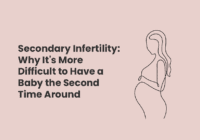In honour of International Self Care Day next week, we want to talk about stress, mental health, and your fertility. Mental health is just as important as physical health. No matter where you’re at in your fertility journey, the thought of pregnancy can feel surreal, exciting, and even a little bit nerve-racking.
Whatever emotions you’re experiencing about getting pregnant, know that your feelings are valid. Deciding to grow your family is a big decision, and it’s normal to feel some fear and stress about becoming pregnant.
To celebrate International Self Care Day, join us on July 22nd at 4:30 PM for an Instagram Live (@drtanyawilliams) with Arti Meyers, founder of Yoga4Good. We’ll show you breathing and yoga exercises to relieve conception anxiety and soothe your body and soul.
Is stress affecting your mental health and the ability to conceive? Read on to find out more about how stress can impact your mental health and your fertility.
Stress and your Body
Both long-term and short-term stress is known to wreak havoc on your mind and body. There’s no doubt it affects your fertility. If you ever missed a period due to stress from studying for exams in college or working on a big project at work, you already know how even “normal” levels of stress can impact your menstrual cycle.
According to The Centre for Addiction and Mental Health, there are a number of cognitive and emotional symptoms of stress. These include difficulty concentrating, constant worrying, low morale, irritability, moodiness, feeling depressed, or not being able to relax.
Stress also manifests physically through headaches, muscle tension, stomach problems, nausea, or low libido (which means you’re likely having less sex when you’re stressed out).
And of course, you might be coping with it by eating unhealthy foods, binge drinking, or smoking. And you may not even be conscious of it! These three common ways people deal with stress are also detrimental to both men and women’s fertility.
How to Eliminate Stress for Fertility
First of all, it’s important to know that stress is a regular part of life. Stress is a survival instinct that keeps you safe from danger. Case in point, stress boosts cognitive function and your awareness in situations like driving on the highway in the middle of a snowstorm. For this reason, it’s impossible to eliminate every cause of stress in your life.
The catch-22 is that stress can contribute to your infertility and, in return, infertility can add to your stress.
Fortunately, in addition to practicing self-care, there are many lifestyle changes you can make that will help you get pregnant and stay pregnant.
Reducing Stress to Conceive
Prioritize Sleep
Most people aren’t getting enough restful sleep. The quality and the amount of sleep you get each night impacts everything. For instance, menstruating, conceiving, and giving birth can all be affected. Since sleep naturally reduces stress, women trying to conceive should get seven to eight hours of sleep per night.
Studies show those who experience insomnia are four times more likely to have infertility issues than well-rested women. Additionally, research conducted by the University of Michigan found 53% of nurses under the age of 40 experienced changes to their menstrual cycle when their shift work started.
For this reason, be sure to hit the hay earlier and catch enough ZZZ’s when you’re trying to get pregnant.
Talk to a Therapist
Similar to the way you go to doctors for your physical health, going to therapy is one of the most proven ways to maintain your mental health. Speaking with a professional therapist can give you the tools and strategies you need to navigate the roller coaster of emotions people experience when trying to conceive. Therapy also gives you a safe space to process your fertility journey from conception to adjusting to life as a new parent.
Lowering physical #stress, through options such as exercise, therapy, meditation, support groups and #yoga, has been shown to improve fertility in both men and women. #TTC pic.twitter.com/hOaq35anaI
— TRM Fertility (@FertilityAlert) January 29, 2020
Try Acupuncture
In addition to Western fertility treatments, the traditional Chinese medical practice of acupuncture may improve menstrual health and coping for women experiencing emotional difficulties during IVF treatment. There’s no data that shows acupuncture increases live births or clinical pregnancy. However, some studies show that it increases blood flow and contributes to relaxation. This can help your chances of pregnancy.

Taking the Next Step
A person can make many lifestyle to improve their chances of getting pregnant. However, they may still be struggling with fertility.
Here at Dr. Tanya Williams Fertility Center in North York, we’re always there to help you on your journey to getting pregnant and having a fruitful fertility journey. Schedule an appointment with your family doctor and print out our patient referral form to get started.
Learn more mechanisms to reduce stress by reading 4 Holistic Methods to Reduce Infertility Stress






